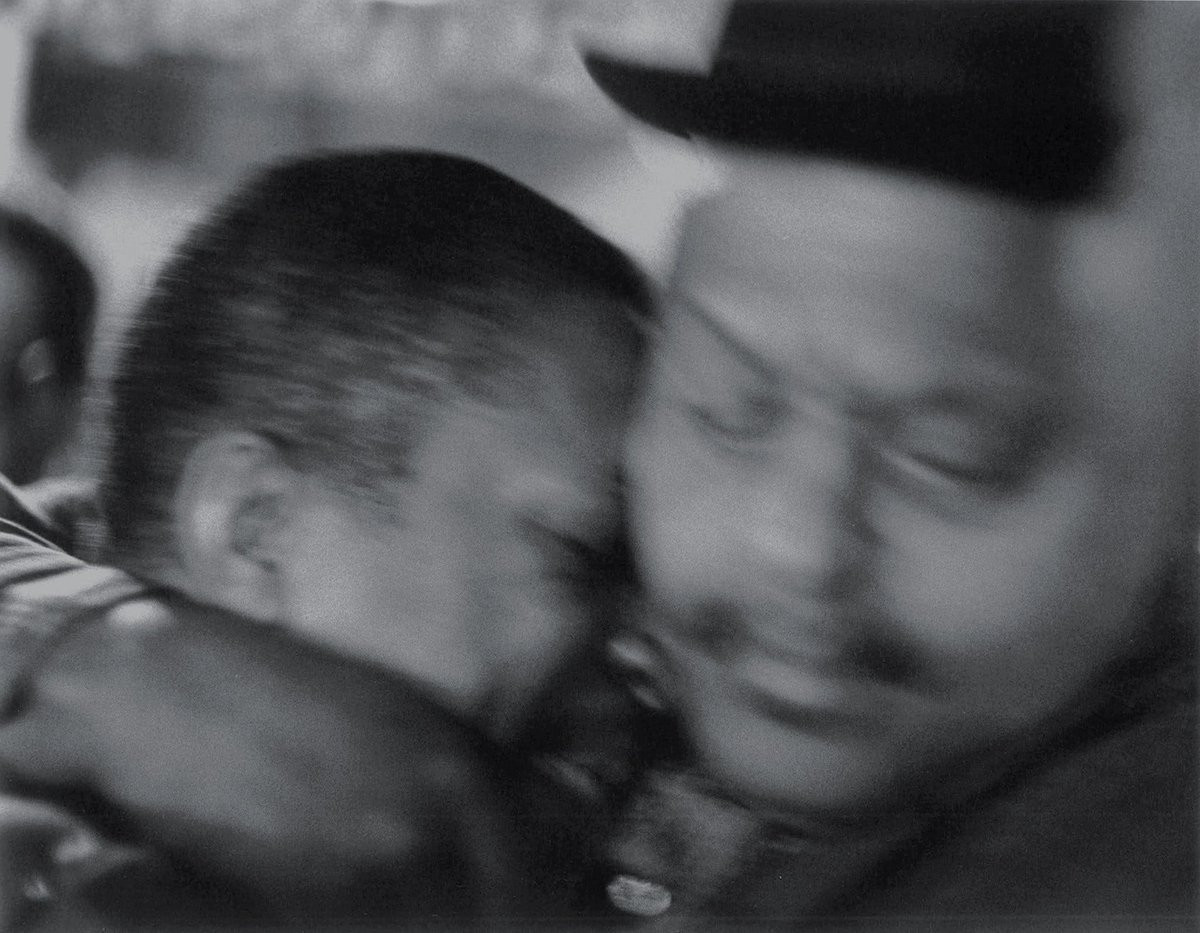Startseite › Foren › Über Bands, Solokünstler und Genres › Eine Frage des Stils › Blue Note – das Jazzforum › Ben Webster – The Brute and the Beautiful › Antwort auf: Ben Webster – The Brute and the Beautiful
gypsy-tail-wind
Tenors 1: Ben Webster umarmt John Coltrane (heute ist sein Geburtstag), der nie so alt werden sollte wie Webster es war, als Roy de Carava 1960 dieses Foto machte. Geoff Dyer hat darüber geschrieben:
https://www.nytimes.com/2017/05/09/magazine/the-intimacy-behind-jazzs-seminal-image.html
—
Tenors 2: David Murray über „Coleman Hawkins Encounters Ben Webster“ – er erwähnt auch Paul Gonsalves und hat eine recht einleuchtende These, warum er die New Yorker-Szene so schnell so sehr dominiert hat:I would play straight through the record; and their dissimilarities would force me to change what I did. When Coleman Hawkins played, his rhythm was so dominant; whereas Ben Webster’s sound and vibrato stood out when he played. I wanted both! I never saw either of them live. But a friend of mine, Steve Potts, told me that one time he got a chance to play alongside Ben Webster, and he said you couldn’t stand too close to Ben ‘cause you might get hit with some spit! There was air in his sound. He was so dynamic because you could hear the note before he played it – you could hear his breath forming the note before it actually came out.
Coleman Hawkins was quite different: [sings line of notes in Hawkins-like style]. Whereas Ben was: [exhales and slurs in Webster-like style]. Coleman Hawkins was like fighting with an axe, Ben Webster was like fighting with a feather! I absorbed both. As years went by, and I became a man, I didn’t want to sound like either one of them. They were just milestones and bookmarks for my own individuality. Though I actually recorded ‘You’d Be So Nice To Come Home To’ years later because of that album ….
Before that record, I was really into Paul Gonsalves from the Ellington band; but this was a step higher. I can honestly say that it changed the way I saw things – I realised I wanted to be out in front of a band. As a teenager, I was playing with a lot of R&B bands, blues bands, backing up bad singers. I played in a 21-piece orchestra, and we’d go into country clubs. I learned a lot of old tunes through that. That stayed with me, even though I wasn’t particularly into big band. Maybe 10 years after, when I came to New York and was part of the loft jazz scene, there were a lot of guys around me that only knew how to play one thing – around that time they used to call it avant garde. They played like they hadn’t absorbed anything; whereas I had all this history in my back pocket. I had more references than many of them had; which is why maybe I ended up being quite dominant during that period.
--
“There are legends of people born with the gift of making music so true it can pierce the veil between life and death. Conjuring spirits from the past and the future. This gift can bring healing—but it can also attract demons.” (From the movie Sinners by Ryan Coogler)